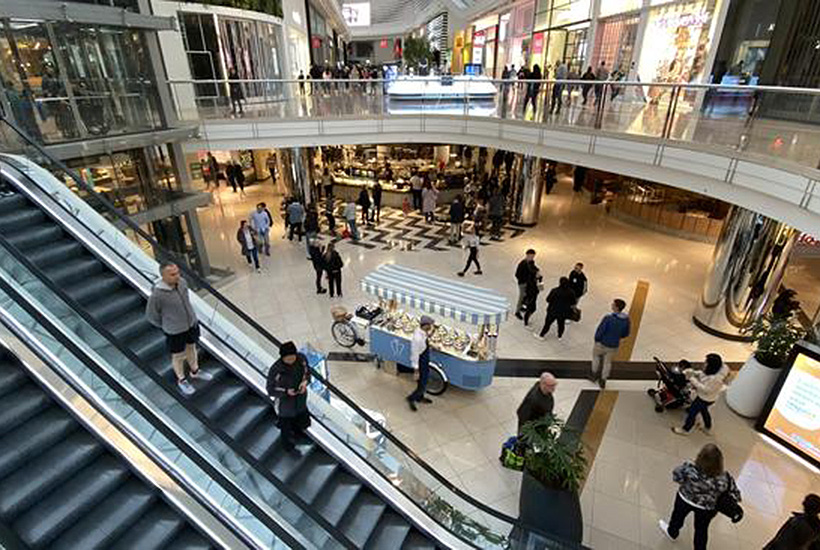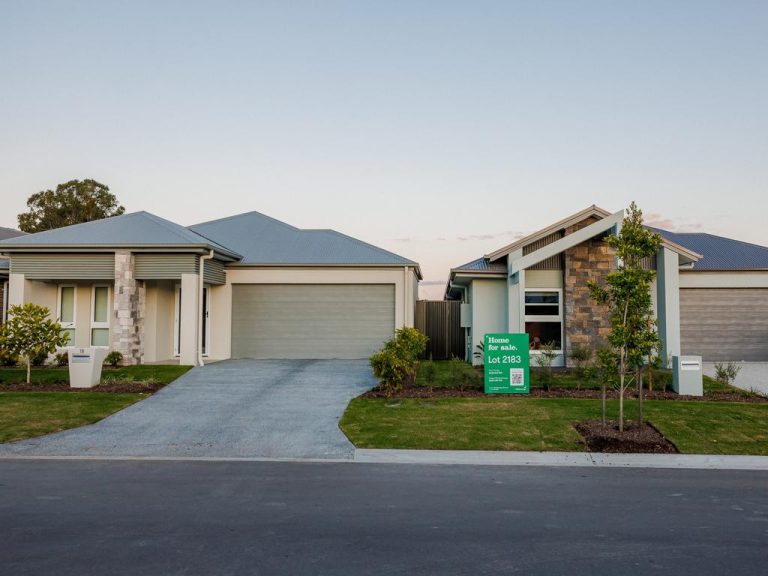The pain in the retail sector has been put on stark display with Chadstone co-owner Vicinity Centres slashing the value of its entire portfolio by nearly $2bn as the coronavirus pandemic discourages shoppers from visiting shopping centres.
The company, whose portfolio is heavily weighted towards Victoria and Melbourne, has been harder hit than rival Scentre, which owns the Australian Westfield empire, and it could be hurt more if Victorian lockdowns drag on.
The pandemic is looming over the mall sector and further heavy writedowns are expected during the December half if foot traffic remain subdued. Superannuation funds are heavily exposed to the downturn, given they have stakes in many of the country’s largest shopping centres directly or via specialist funds, which have also been hit by a string of writedowns over the past year.
“This remains a highly uncertain and evolving environment, as demonstrated by current circumstances in Victoria. Any reductions in discretionary retail spending and lower retail activity may continue to have an adverse impact on the valuation of Vicinity’s assets,” Vicinity chief executive Grant Kelley said.
Values have plunged as many tenants are yet to agree on rental discounts for the last lockdown and the longer-term implications of a drawn-out recession, including higher mall vacancies and lower rents, are now slamming retail landlords.
With a second wave of coronavirus cases sweeping through Victoria and parts of NSW, deeper cuts are expected over the remainder of the year, with valuations a lagging indicator of the pain being felt by both landlords and their tenants.
Restrictions to put a lid on the pandemic are decimating smaller retailers in Victoria who face mounting debts and are under pressure to pay landlords even as profitable larger chains either refuse to pay rent or tell landlords they will slash their space.
Tensions are growing between chains like Solomon Lew‘s Premier Investments, which has pushed for turnover-based rents, and landlords like Chadstone co-owner billionaire John Gandel, who has rejected this call.
The landmark Melbourne centre was hit by a 7.5 per cent devaluation, which was described as a solid result compared to the rest of the portfolio. “While this is a marginal positive, we note further devaluations are likely to come as COVID and structural effects continue to be felt through retail sector. This is especially true given Vicinity‘s exposure to discretionary, CBD and Victorian assets,” Macquarie Equities analysts led by Stuart McLean said.
Vicinity was off by 2.5 per cent to $1.37 and Scentre closed 2.8 per cent lower at $2.11, with analysts saying their prices implied mall values would fall by 20-30 per cent.
Scentre is yet to provide valuations to market. Although it has a lower exposure to Victoria, its city malls and tourist-focused retailers are suffering.
Stockland, Mirvac and GPT have already taken writedowns on their centres and shelved new projects.
Industry specialist Mitchell McCallum, executive director at MSCI, said the continued slowdown in retail funds was indicative of trends that were emerging before COVID-19 for larger centres.
“The evolving disruption to destination shopping continues to challenge operators as they adapt to new conditions. Valuers continue to assess rental impacts as they and the broader market wait on transactions to guide values going forward,” he said.

Vicinity Centres CEO Grant Kelley: ‘This remains a highly uncertain and evolving environment, as demonstrated by current circumstances in Victoria.’ Picture: David Geraghty
Listed companies are usually ahead of unlisted funds but most of the private shopping centre funds moved to monthly valuations in March.
Mercer head of real estate, Pacific, Padraig Brown, said cumulative valuation declines had been “double digit” over this period, with the largest declines in March and April, and recent months relatively stable.
“As there has been an absence of transactional evidence, valuation declines have reflected lost income due to the pandemic and shutdowns, lower market rents and higher vacancies,” he said.
The picture on the ground is also tough.
LeaseWise managing director Ange Kondos said the Morrison government’s leasing code and moratorium on evictions had been pivotal in preventing “complete bloodshed”.
He called for extension of the scheme along with the JobKeeper program, despite some landlords seeking to take advantage of its structure. “Most big landlords are viewing JobKeeper payments as an ability for a tenant to pay rent,” Mr Kondos said.
He warned some landlords were refusing to engage and settle agreements unless it was on their terms. He said many mall owners were latching on to the code’s minimum conditions, adding that private independent landlords had been the most aggressive.
Their stance comes despite mall vacancies hitting a 20-year high as eased restrictions and increased foot traffic have done little to lessen the pain felt by retailers.
Coronavirus pressures on many retailers caused the average number of empty shop fronts in centres around the county to jump to 5.1% in June, the highest in more than 20 years, according to JLL.
The key drag on Vicinity’s devaluations were regional centres, a rung below Chadstone, which plunged by 15.6%, with mid-sized sub-regionals off by 10.5 per cent and even relatively resilient neighbourhood centres down 12.3%, a deeper cut than by rival operators.
Analysts put about a third of the income fall down to rental waivers from small businesses but in a warning to the industry said there would be lower income assumptions applied for the medium and longer term.
Vicinity said the portfolio net valuation decline of 11.3% reflected the impact of COVID-19 and the evolving retail landscape. It recorded a loss on its flagship portfolio, including Chadstone, premium CBD and DFO outlet centres, of 8.8%.
Vicinity undertook independent valuations of its 60 directly-owned retail properties, which it said resulted in the overall portfolio decline of $1.79bn.
This was at the lower end of the range of a decline of 11-13 per cent it announced last month as it raised $1.2bn.
Mr Kelley said the results highlighted the resilience of flagship malls, and affirmed the landlord’s strategy and weighting towards metropolitan markets with strong long-term fundamentals.
With no large shopping centre deals to speak of since the COVID-19 outbreak, valuers had addressed market conditions by focusing on the underlying cashflows, and they had allowed for vacancy, downtime, leasing capital and lowering expectations for sales and market rental growth over the next three years.
Mr Kelley said a portion of the valuation decline in the period related to assistance in the form of rent waivers provided by Vicinity to retailers hurt by the COVID-19 pandemic.
There was a 21 basis point softening in the weighted average capitalisation rate of the portfolio to 5.47%.
Mr Kelley said that aside from Victoria, conditions continued to improve.
“For many of our centres, particularly those that are less reliant on office workers or tourists, customer visitation has returned to, or is close to, pre COVID-19 levels,” he said.
Visitation across the portfolio is 68% of the previous year’s level.









